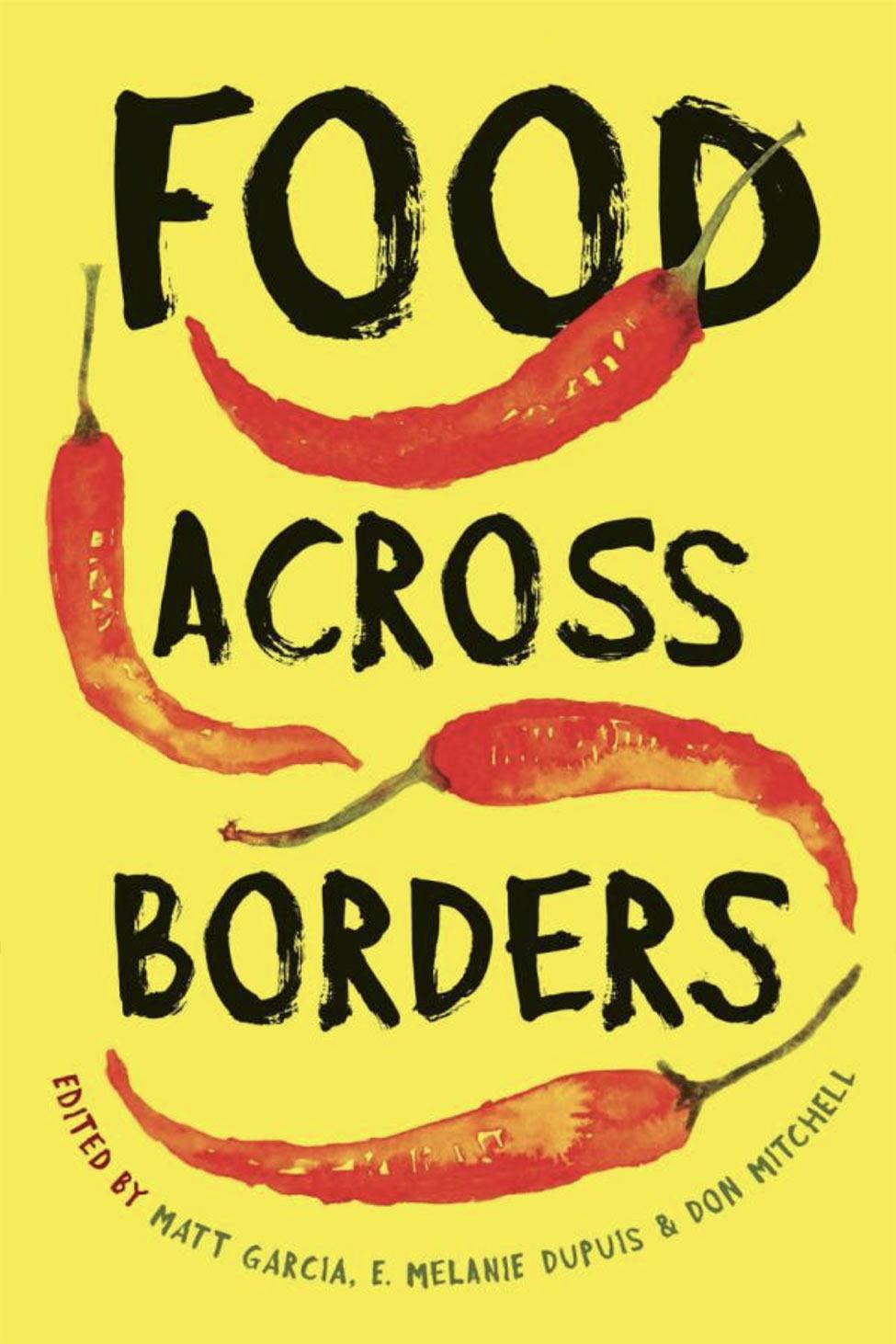

Food Across Borders
E. Melanie Dupuis, PhD
Professor Environmental Studies And Science, Pleasantville

What is the central theme of your book?
Eating is a process that involves borders in many ways: (1) our food is produced by people who cross borders to work in the fields, (2) people often define who they are by what they eat, something anthropologists have been telling us for decades. But – and this is the most exciting “but” in the book: (3) bodies are a borderlands, in which inclusion, exclusion and transgression all play a role in determining what we put into it. It’s this third point that I explore in my previous book, Dangerous Digestion.
What inspired you to write this book?
I was inspired by the other authors and, especially, my co-editors, Matt Garcia and Don Mitchell. Matt and I worked together on a project when I was at the University of California, a special issue of the journal Gastronomica. And everyone wants to work with Don. A few years ago, they asked me to moderate a discussion at the Smithsonian about the books they had just published on the history of farmworkers and farmworker movements in the US. From those conversations, we applied for a Clements Center for the History of the Southwest grant to bring together scholars who were exploring the topic of food and borders. I was working on Dangerous Digestion at the time. Once we got into a conversation about the borders in our work we were on a roll.
Why is this book important in your field?
What does it contribute to the current body of knowledge on its topic? There is no other book out there that explores the issue of physical bodies crossing borders to produce our food as well as thinking of eating as a crossing of the physical boundaries of the body. Who crosses our borders and what we eat are intrinsically intertwined.
Were students involved in any research related to your book? If so, please explain and name the student(s).
A number of our authors were students in graduate programs when they began participating in this project. Most of them are now assistant professors at various universities.
Tell me about a particularly special moment in writing this book.
Our trip to Taos for the first workshop was really fantastic. We were working with younger scholars, most of whom we’d just met. In between discussing chapter drafts we visited local historical sites, ate together and took walks. That’s were the best ideas got generated.
What is the one thing you hope readers take away from your book?
That American food is the product of a lot of border crossing, both in terms of who produces our food and what we put on the dinner table.
Is there anything else you would like to share about your book?
We just presented on the book at the Western Historical Association, and Rutgers, our press, threw us a very nice book party afterwards. We will be at the Yale Food Systems Symposium in February as well.
What other books have you had published?
My last book was Dangerous Digestion: The Politics of American Diet, where I show how American politics and diet are intertwined. I’m mostly known for my history of milk, Nature’s Perfect Food: How Milk Became America’s Drink, which is not a book about whether or not you should drink milk but about how people have talked about milk over the last couple of centuries. I have a coauthored book on Alternative Food Networks, which compares movements to change the food system in the US, Europe and globally. I also edited two books, one about the history of air pollution and another about the problems with the way experts have gone about saving rural and wild places.
Fun Facts
When did you join Dyson?
2014
What motivates you as a teacher?
I came to Pace to build a new department because I believe this next generation needs the tools to solve the enormous environmental challenges they will face. We are building a department that teaches those tools.
What do you do in your spare time; to relax/unwind?
I’m a major fan of live music. I went to see Mt. Eerie a few weeks ago and I am very pleased about my tickets to Do Make Say Think in December. Plus I’ve been pal-ing around with some dance and jazz addicts.
What are you reading right now?
I’m actually listening to a novel: Swingtime by Zadie Smith.